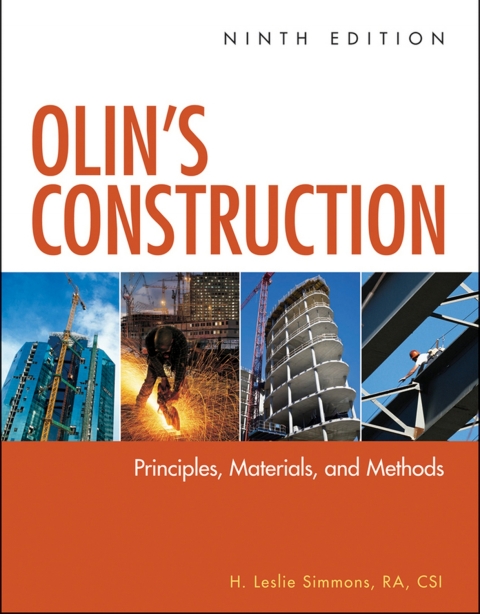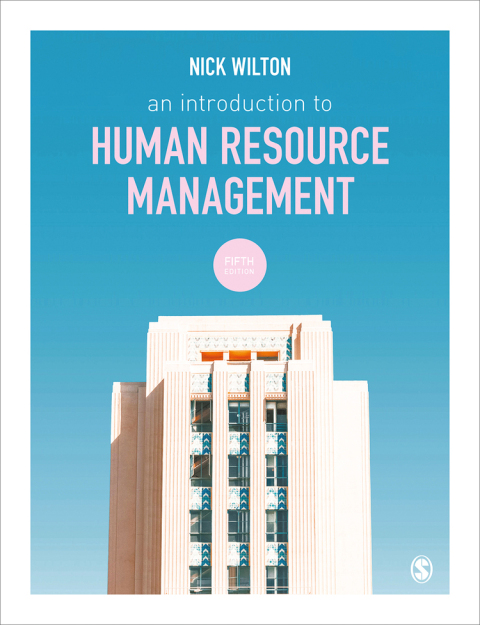Description
Efnisyfirlit
- OLIN’S CONSTRUCTION
- Contents
- Preface
- Acknowledgments
- Acknowledgments for the Ninth Edition
- Disclaimer
- CHAPTER 1 DESIGN AND CONTRACTING REQUIREMENTS
- Introduction
- Applicable MasterFormat™ Sections
- 1.1 Building Design
- 1.2 Industry Standards
- 1.3 Codes
- 1.4 Barrier-Free Design
- 1.5 Sustainable Building Design
- 1.6 Construction Documents
- 1.7 Bidding and Negotiation
- 1.8 Construction Contract Administration
- 1.9 Construction Management
- 1.10 Additional Reading
- 1.11 Acknowledgments and References
- CHAPTER 2 EXISTING CONDITIONS
- Introduction
- Sustainability Considerations
- Applicable MasterFormat™ Sections
- 2.1 Land Surveys and Descriptions
- 2.2 Demolition
- 2.3 Subsurface Investigation
- 2.4 Additional Reading
- 2.5 Acknowledgments and References
- CHAPTER 3 CONCRETE
- Introduction
- Sustainability Considerations
- Applicable MasterFormat™ Sections
- 3.1 History
- 3.2 Concrete Materials
- 3.3 Formwork
- 3.4 Reinforcement
- 3.5 Accessories
- 3.6 Joints
- 3.7 Mixtures and Mixing
- 3.8 Handling, Transporting, Placing, and Consolidating
- 3.9 Finishing
- 3.10 Curing and Protection
- 3.11 Concrete Foundation Systems
- 3.12 Concrete Slabs on Grade
- 3.13 Cast-in-Place Structural Concrete
- 3.14 Precast Concrete
- 3.15 Specialty Concretes
- 3.16 Concrete Toppings
- 3.17 Structural Insulating Roof Decks
- 3.18 Underlayment
- 3.19 Additional Reading
- 3.20 Acknowledgments and References
- CHAPTER 4 MASONRY
- Introduction
- Sustainability Considerations
- Applicable MasterFormat™ Sections
- 4.1 History
- 4.2 Mortar and Grout
- 4.3 Reinforcement, Ties, Anchors, and Flashing
- 4.4 Clay Masonry Units
- 4.5 Concrete Masonry Units
- 4.6 Unit Masonry Design
- 4.7 Unit Masonry Erection
- 4.8 Stone
- 4.9 Glass Unit Masonry
- 4.10 Properties of Selected Masonry Walls
- 4.11 Additional Reading
- 4.12 Acknowledgments and References
- CHAPTER 5 METALS
- Introduction
- Sustainability Considerations
- Applicable MasterFormat™ Sections
- 5.1 Iron and Steel Materials and Products
- 5.2 Aluminum Materials and Products
- 5.3 Joints and Connections in Metal Assemblies
- 5.4 Structural Steel Framing
- 5.5 Steel Joists and Joist Girders
- 5.6 Steel Decking
- 5.7 Long Spans in Steel Construction
- 5.8 Steel Stairs
- 5.9 Cold-Formed Metal Framing
- 5.10 Other Metals
- 5.11 Metal Finishes
- 5.12 Additional Reading
- 5.13 Acknowledgments and References
- CHAPTER 6 WOOD, PLASTICS, AND COMPOSITES
- Introduction
- Sustainability Considerations
- Applicable MasterFormat™ Sections
- 6.1 Properties of Wood
- 6.2 Lumber
- 6.3 Engineered Wood Products
- 6.4 Wood Protection
- 6.5 Foundations
- 6.6 General Framing Requirements
- 6.7 Conventional Framing and Furring
- 6.8 Structural Panels
- 6.9 Shop-Fabricated Structural Wood
- 6.10 Sheathing
- 6.11 Other Framing Systems
- 6.12 Long Span Wood Structures
- 6.13 Finish Carpentry
- 6.14 Plastics
- 6.15 Additional Reading
- 6.16 Acknowledgments and References
- CHAPTER 7 THERMAL AND MOISTURE PROTECTION
- Introduction
- Sustainability Considerations
- Applicable MasterFormat™ Sections
- 7.1 Moisture Control
- 7.2 Dampproofing and Waterproofing
- 7.3 Thermal Insulation
- 7.4 Exterior Insulation and Finish Systems
- 7.5 Weather and Air Barriers
- 7.6 Steep-Slope Roofing
- 7.7 Siding
- 7.8 Membrane Roofing Systems
- 7.9 Flashing and Sheet Metal
- 7.10 Metal Roofing
- 7.11 Roof Specialties and Accessories
- 7.12 Fireproofing
- 7.13 Joint Protection
- 7.14 Additional Reading
- 7.15 Acknowledgments and References
- CHAPTER 8 OPENINGS
- Introduction
- Sustainability Considerations
- Applicable MasterFormat™ Sections
- 8.1 Metal Doors and Frames
- 8.2 Wood and Plastic Doors
- 8.3 Specialty Doors
- 8.4 Entrances and Storefronts
- 8.5 Glazed Aluminum Curtain Walls
- 8.6 Metal Windows and Sliding Glass Doors
- 8.7 Wood and Plastic Windows and Sliding Glass Doors
- 8.8 Storm and Screen Doors and Windows
- 8.9 Door Hardware
- 8.10 Glazing
- 8.11 Additional Reading
- 8.12 Acknowledgments and References
- CHAPTER 9 FINISHES
- Introduction
- Sustainability Considerations
- Applicable MasterFormat™ Sections
- 9.1 Supports for Plaster and Gypsum Board
- 9.2 Materials for Plaster and Gypsum Board
- 9.3 Gypsum Plaster Mixes and Application
- 9.4 Portland Cement Plaster Mixes and Application
- 9.5 Gypsum Board
- 9.6 Tiling
- 9.7 Acoustical Treatment
- 9.8 Brick Flooring and Paving
- 9.9 Stone Flooring and Paving
- 9.10 Wood Flooring
- 9.11 Resilient Flooring
- 9.12 Terrazzo Flooring
- 9.13 Fluid-Applied Flooring
- 9.14 Carpeting
- 9.15 Vinyl-Coated Fabric Wall Coverings
- 9.16 Painting
- 9.17 Special Coatings
- 9.18 Additional Reading
- 9.19 Acknowledgments and References
- CHAPTER 10 SPECIALTIES
- Introduction
- Applicable MasterFormat™ Sections
- 10.1 Fire Protection Specialties
- 10.2 Additional Reading
- 10.3 Acknowledgments and References
- CHAPTER 11 FURNISHINGS
- Introduction
- Sustainability Considerations
- Applicable MasterFormat™ Sections
- 11.1 Wood and Decorative Laminate Casework
- 11.2 Window Treatment
- 11.3 Additional Reading
- 11.4 Acknowledgments and References
- CHAPTER 12 SPECIAL CONSTRUCTION
- Introduction
- Applicable MasterFormat™ Sections
- 12.1 Sound Control
- 12.2 Additional Reading
- 12.3 Acknowledgments and References
- CHAPTER 13 CONVEYING SYSTEMS
- Introduction
- Applicable MasterFormat™ Sections
- 13.1 Elevators and Lifts
- 13.2 Escalators and Moving Walks
- 13.3 Additional Reading
- 13.4 References
- CHAPTER 14 FIRE SUPPRESSION
- Introduction
- Sustainability Considerations
- Applicable MasterFormat™ Sections
- 14.1 Fire Suppression Standpipe Systems
- 14.2 Fire Suppression Sprinkler Systems
- 14.3 Fire Extinguishing Systems
- 14.4 Additional Reading
- 14.5 References
- CHAPTER 15 PLUMBING
- Introduction
- Sustainability Considerations
- Applicable MasterFormat™ Sections
- 15.1 Codes, Laws, and Industry Standards
- 15.2 Water Supply
- 15.3 Drainage
- 15.4 Plumbing Fixtures
- 15.5 Sound Control
- 15.6 Additional Reading
- 15.7 Acknowledgments and References
- CHAPTER 16 HEATING, VENTILATING, AND AIR CONDITIONING (HVAC)
- Introduction
- Sustainability Considerations
- Applicable MasterFormat™ Sections
- 16.1 Heat and Comfort
- 16.2 Building Design Recommendations
- 16.3 Heat Loss and Heat Gain
- 16.4 Commissioning
- 16.5 HVAC Controls
- 16.6 HVAC Delivery Systems
- 16.7 Central HVAC Equipment
- 16.8 Decentralized HVAC Equipment
- 16.9 Additional Reading
- 16.10 Acknowledgments and References
- CHAPTER 17 ELECTRICAL
- Introduction
- Sustainability Considerations
- Applicable MasterFormat™ Sections
- 17.1 Fundamentals of Electricity
- 17.2 Service and Distribution
- 17.3 Lightning Protection
- 17.4 Lighting
- 17.5 Additional Reading
- 17.6 Acknowledgments and References
- CHAPTER 18 COMMUNICATIONS
- Introduction
- Applicable MasterFormat™ Sections
- 18.1 Communications Systems
- 18.2 Additional Reading
- 18.3 References
- CHAPTER 19 ELECTRONIC SAFETY AND SECURITY
- Introduction
- Applicable MasterFormat™ Sections
- 19.1 Intrusion Prevention and Detection
- 19.2 Fire Detection and Alarm
- 19.3 Additional Reading
- 19.4 Acknowledgments and References
- CHAPTER 20 EARTHWORK
- Introduction
- Sustainability Considerations
- Applicable MasterFormat™ Sections
- 20.1 Soils
- 20.2 Site Clearing
- 20.3 Earthwork
- 20.4 Surface Water and Groundwater Problems
- 20.5 Special Foundations and Load-Bearing Elements
- 20.6 Additional Reading
- 20.7 Acknowledgments and References
- CHAPTER 21 EXTERIOR IMPROVEMENTS
- Introduction
- Sustainability Considerations
- Applicable MasterFormat™ Sections
- 21.1 Lawns and Landscaping
- 21.2 Additional Reading
- 21.3 Acknowledgments and References
- CHAPTER 22 UTILITIES
- Introduction
- Sustainability Considerations
- Applicable MasterFormat™ Sections
- 22.1 Water Supply Sources
- 22.2 Sanitary Sewage Utilities
- 22.3 Subdrainage Systems and Storm Drainage Utilities
- 22.4 Electrical Power Distribution
- 22.5 Additional Reading
- 22.6 Acknowledgments and References
- CHAPTER 23 PROPERTIES OF MATERIALS
- Introduction
- 23.1 Structure of Matter
- 23.2 Properties of Matter
- 23.3 Additional Reading
- 23.4 Acknowledgments and References
- CHAPTER 24 THE METRIC SYSTEM OF MEASUREMENT
- Introduction
- 24.1 The History of Measurement
- 24.2 The Metric System
- 24.3 The International System of Units
- 24.4 SI Units for Design and Construction
- 24.5 Conversion of Numerical Values
- 24.6 Preferred Dimensions and Coordination
- 24.7 Metric Conversions Applicable to This Book
- 24.8 Additional Reading
- 24.9 Acknowledgments and References
- GLOSSARY
- INDEX






Reviews
There are no reviews yet.